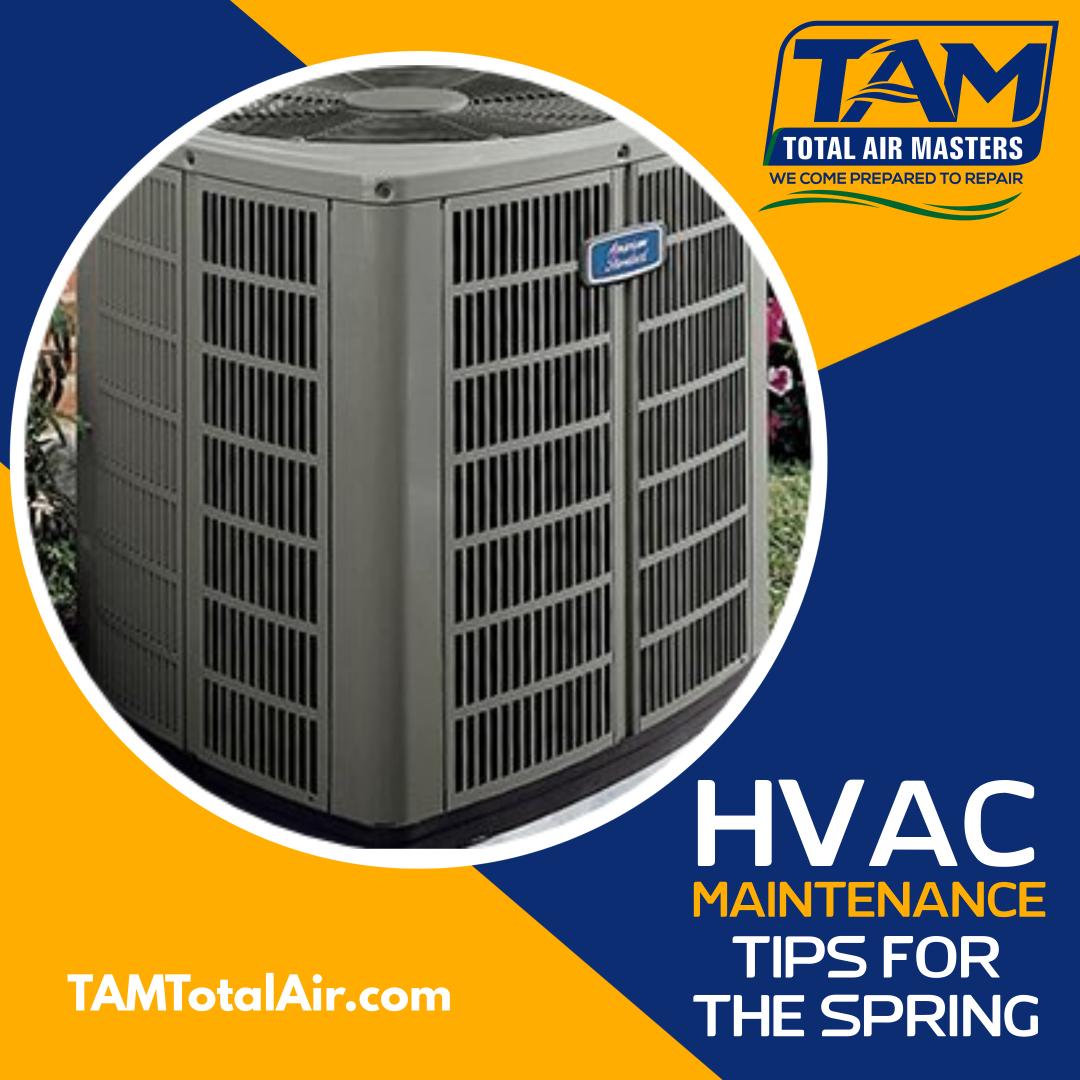
Spring is a great time to get your HVAC system ready for the warmer weather. Regular HVAC maintenance can help ensure that your system runs efficiently and effectively, providing you with comfortable indoor temperatures and optimal energy efficiency.
Here are some essential HVAC maintenance tips to consider for the spring season. According to Amana, one of our manufacturers, some tasks can be performed by the homeowner, but others should be done by a certified HVAC contractor.
- Clean or Replace Air Filters. Air filters play a crucial role in keeping your HVAC system running efficiently by capturing airborne particles and preventing them from clogging your system. Over time, these filters can become clogged with dirt, dust, and debris, which can lead to poor indoor air quality, decreased airflow, and even system breakdowns. To avoid these issues, clean or replace your air filters every 1-3 months, depending on your usage and the type of filter.
- Inspect Ductwork for Leaks. Leaky ductwork can significantly impact the efficiency of your HVAC system, as it allows conditioned air to escape before it reaches its intended destination. In addition, leaky ductwork can cause a range of indoor air quality issues by allowing allergens, pollutants, and other contaminants to enter your home. To avoid these problems, inspect your ductwork for leaks and seal any gaps or cracks with a high-quality duct sealant.
- Clean Condenser Coils. The condenser coils in your outdoor HVAC unit play a crucial role in releasing heat and maintaining optimal performance. Over time, these coils can become caked with dirt, debris, and other outdoor contaminants, which can impact their ability to function effectively. To avoid these problems, clean your condenser coils at least once a year using a gentle, low-pressure stream of water.
- Check Refrigerant Levels. Refrigerant is a critical component of your HVAC system, as it helps to cool the air that circulates throughout your home. Low refrigerant levels can cause your system to work harder than it needs to, which can lead to increased energy bills and decreased system lifespan. To avoid these issues, have a professional HVAC technician check your refrigerant levels and top off as necessary.
- Inspect Electrical Connections. Faulty electrical connections can cause your HVAC system to stop working altogether or to function poorly, which can be costly and inconvenient. To avoid these issues, inspect your electrical connections and make sure they are tight, clean, and free from signs of wear or damage.
- Test Thermostat Settings. Your thermostat plays a critical role in regulating indoor temperatures and ensuring that your HVAC system runs efficiently. To avoid wasted energy and unnecessary wear and tear on your system, test your thermostat settings and make sure that they are programmed correctly for your daily routine.
- Schedule Professional HVAC Maintenance. Even if you take all of the above steps, it is still a good idea to schedule professional HVAC maintenance at least once a year. A trained technician can help identify any potential issues with your system, clean and lubricate critical components, and provide recommendations for improving energy efficiency and performance.
In summary, regular HVAC maintenance is essential for ensuring optimal system performance and energy efficiency. By following the tips above, you can help keep your system running smoothly throughout the spring and beyond, and avoid costly breakdowns and repairs.
Schedule an appointment with us to perform AC tune up and get your system ready for the Spring.
